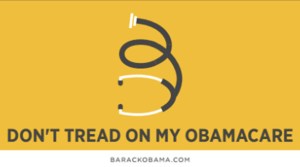I explained the other day how the mythical moderate from Maine, Senator Susan Collins, is being played by the Trump White House on her wholly insufficient “Obamacare” reinsurance fund bill in order to gain her vote on the Senate GOP tax bill. In major policy reversal, Trump now backs bipartisan fixes to ‘Obamacare’ to get Sen. Susan Collin’s vote on GOP tax bill.
The Congressional Budget Office (CBO) has now scored the bill negotiated by Sens. Lamar Alexander (R-TN) and Patty Murray (D-WA) to stabilize the “Obamacare” market, and it also comes up woefully short. The CBO just released a report that should worry Sens. Susan Collins and Lisa Murkowski:
 A new report from the Congressional Budget Office dealt what should be a crushing blow to the tax bill: The deal that was crafted to win key senators who objected to the bill’s provision that would leave millions uninsured won’t actually stanch the loss in coverage.
A new report from the Congressional Budget Office dealt what should be a crushing blow to the tax bill: The deal that was crafted to win key senators who objected to the bill’s provision that would leave millions uninsured won’t actually stanch the loss in coverage.
With moderates expressing concern over a provision that would repeal Obamacare’s individual mandate — leaving an estimated 13 million more uninsured by 2027 — Republican leadership hatched a plan to simultaneously pass a bill to stabilize the Obamacare marketplaces, a proposal negotiated by Sens. Lamar Alexander (R-TN) and Patty Murray (D-WA).
But this proposal hit a major snag Wednesday when a new CBO report found passing the Alexander-Murray proposal — the centerpiece of which is funding Obamacare’s cost-sharing reduction subsidies that Trump has threatened to pull — would not in fact help mitigate the coverage losses and premium hikes triggered by repealing the individual mandate.
Previous estimates from the CBO found that repealing the individual mandate, the Obamacare policy that penalizes people who opt out of buying health insurance, would leave 13 million fewer insured by 2027 and increase premiums by an average of 10 percent over the next decade.
“If legislation were enacted that incorporated both the provisions of the Bipartisan Health Care Stabilization Act and a repeal of the individual mandate … the effects on the premiums and the number of people with health insurance coverage would be similar,” Keith Hall, the CBO’s director, wrote in a letter to Murray.



